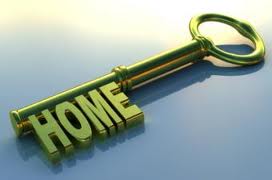
BLOG
Sellers Jack Up Price After Offer is Accepted
Until a contract is SIGNED it is not accepted! Be very careful when "words" or a simple "handshake" is used! It might come back to haunt you! Laura Key 310.866.8422
Some home sellers are accepting a buyer’s offer, even having a contract drawn up, only to ask for a higher price a few days later.
The move called “goalpost-shifting” is becoming more common in competitive markets with limited inventories of homes for sale, The New York Times reports. Some sellers keep the bidding on their homes going even after they’ve said they'll accept an offer from a buyer.
The New York Times describes a recent incident where a buyer offered $912,000 for a condo that was originally listed for $800,000, which had attracted more than a dozen offers. The seller accepted the buyer’s offer and a contract was written. However, a few days later the seller notified the buyer that the price had increased to $995,000. The buyer refused to increase his offer, and lost out on the unit. The seller ended up selling to another buyer who offered $1.1 million.
The practice is controversial, but The New York Times quotes brokers who note that buyers are learning a tough lesson: Until signatures are on a contract, a deal isn’t done. Also, they note the buyer is generally given the opportunity to increase their offer. However, other agents say it’s a greedy move on sellers’ part and that once sellers give their word, they should honor it.
“It’s surprising how ugly it’s getting,” says Robert Frankel, a real estate lawyer who frequently handles closings. “If you don’t hear back about a contract in two days, there are usually some shenanigans going on.”
Source: DAILY REAL ESTATE NEWS | MONDAY, JULY 22, 2013
The Real Estate World is moving and shaking, make sure you have an expert to help you during these times. Call Laura today! 310.866.8422
Housing Shortage Will Dampen Spring Market
Buyers must be prepared more than ever! Do you have your PRE-APPROVAL in hand? It could mean the different of you getting your new home or renting for another year. Call me, let's discuss your options! Laura Key 310.866.8422
The housing recovery is progressing, but a shortage of homes on the market will limit the number of home sales this spring selling season, industry insiders say.
"If we don't see more people listing their properties, I don't think we will see the home sales volume increase that we are accustomed to seeing," Glenn Kelman, chief executive officer of Redfin told Reuters. "There are far more buyers than there are sellers on the market. We would have a huge boom spurred by low interest rates if there were more inventory on the market."
Still, the National Association of REALTORS® predicts existing-home sales will rise around 7 or 8 percent this spring compared to year ago levels.
In some areas where inventories are particularly constrained—like Washington, D.C., New York, and several California cities—homes are selling within hours of being placed on the market.
"The demand for properties is insane. The bidding wars that are going on, there is not enough inventory and it has become truly a seller's market again," says Neil Garfinkel, real estate attorney at Abrams Garfinkel Margolis Bergson in New York.
Source: “Analysis: Supply crunch to take steam out of home sales,” Reuters (April 3, 2013)
After Central Air, Buyers Want Walk-In Closets
I have to agree with this article. What is more important to you for your new home? Laura.A.Key@gmail.com
Recent home buyers who want a walk-in closet but didn’t get one in their home say they’re willing to spend $1,350 for one. That’s just one of the important findings in the 2013 Profile of Buyers’ Home Feature Preferences, released today by the National Association of REALTORS®.
Buyers who wanted new kitchen appliances but didn’t get them say they’re willing to spend $1,840 for them. Those who wanted air conditioning are willing to spend $2,520.
The report looks at 33 home feature preferences based on what a representative sample of U.S. households that bought between 2010 and 2012 say they value. Just over 2,000 households participated.
Among the findings: Households in the South tend to want the biggest and newest homes, and they like wooded lots. Those in the Northeast are most likely to like hardwood floors. First-time buyers and single women are big buyers of older homes. Households with children and move-up buyers like larger homes.
The report also contains these tidbits on buyer preferences:
· Among buyers 55 and older, 42 percent want a single-level home, compared to just 11 percent of buyers under age 35. Single women also tend to place importance on single-level homes.
· Single men want finished basements.
· Single men and married couples place importance on new kitchen appliances.
· Among all 33 home features in the survey, central air conditioning is the most important to the most buyers; 65 percent consider this very important.
· The next most important feature is a walk-in closet in the master bedroom; 39 percent considered this very important.
· Also important — buying a home that’s cable-, satellite TV-, or Internet-ready.
· Thirty-two percent of buyers say they’re willing to pay a median of $5,420 more for a residence that also has waterfront property, and 40 percent say they’re willing to pay a median of $5,020 more for a home that’s less than five years old.
— Robert Freedman, REALTOR® Magazine
Ready to find your dream home! Search for free! No signup, no hassle, just a good solid resource. Let me earn your business! www.KeyCaliforniaHomes.com
Home Prices Surge Despite Distress
For nine straight months, national home prices have been in the positive, and the gains are only getting larger. The latest reading for November shows a 7.4 percent jump from a year ago, according to CoreLogic. That includes sale prices of distressed properties, bank-owned homes and short sales. This is the largest year-over-year jump since 2006 when we were at the height of the housing boom.
"As we close out 2012 the pending index suggests prices will remain strong," wrote Mark Fleming, chief economist for CoreLogic in a release. "Given that the recently released Qualified Mortgage rules issued by the Consumer Financial Protection Bureau are not expected to significantly restrict credit availability relative to today, the gains made in 2012 will likely be sustained into 2013."
Some had predicted price gains of between three and five percent in 2013, but these numbers seem to indicate the market could outpace expectations.
While competition among investors for distressed properties drove home price gains in much of 2012, the non-distressed market appears to be catching up. Excluding distressed sales, home prices still saw a healthy 6.7 percent annual gain in November, and analysts at CoreLogic are predicting an even larger 8.4 percent jump in December.
"For the first time in almost six years, most U.S. markets experienced sustained increases in home prices in 2012," said Anand Nallathambi, president and CEO of CoreLogic. "We still have a long way to go to return to 2005-2006 levels, but all signals currently point to a progressive stabilization of the housing market and the positive trend in home price appreciation to continue into 2013."
Just six states, Delaware, Illinois, Connecticut, New Jersey, Rhode Island and Alabama saw annual price depreciation. New Jersey still has a huge backlog of distressed properties, as does Illinois. Arizona, Nevada and California are seeing big home price gains, as investors there continue to inhale properties to take advantage of the very lucrative rental market. Still, even excluding distressed sales, Nevada saw a 12 percent jump in home prices.
There are, however, still looming headwinds to home prices, as banks ramp up foreclosures especially in states that require these cases to go before a judge. That new inventory could slow price gains in those states. Inventory, or lack thereof, is the primary driver of much of these gains. There were just 2.03 million homes for sale in November, according to the National Association of Realtors, a 23 percent drop from November of 2011 and the lowest supply since September of 2005.
Some are concerned that low inventory and not increased demand is juicing prices faster than is healthy for the housing recovery. If prices start to outpace earnings and employment growth, and then more properties hit the market this Spring, these gains could take a U-turn.
Source: CNBC by By: Diana Olick
Buyers are starting to have a hard time finding the homes they need! Let me help guide you through the market to help you obtain the home you need before prices go to far! Laura Key www.KeyCaliforniaHomes.com
The American Dream of Homeownership!
In addition, owning your own home provides a sense of security and well-being that's hard to beat. Home is where we raise our families, have friends over for summer barbeques, paint the baby's room pink or blue, and find refuge from the outside world.
Owning a home offers other advantages as well. For instance, as a homeowner, you have control over your environment. Not only can you change your home to meet your needs, but you also aren't subject to the terms of a lease or a landlord. As a homeowner, you can experience the emotional and financial security that comes from knowing what your housing expenses will be from year to year. Unlike rents, which can increase annually, most mortgages have fixed or capped monthly payments. So, as a homeowner, you can have a much better idea of what proportion of your paycheck goes toward your home. Think of it as the ultimate savings plan.
And it only gets better. Homeownership is the primary component in the creation of wealth for many Americans. Data from Harvard University's Joint Center of Housing Studies illustrate not only that the median net wealth of homeowners is 34 times greater than that of renters, but also that over half of that wealth is generated from home equity. As you pay down your loan amount each month, you accumulate equity, a growing ownership interest in your property. If you need funds, you can borrow against this equity in the form of a home equity loan. Further, interest on a portion of home equity is tax-deductible.
Most homes appreciate in value over time and can be a source of income for you, especially if you've lived in your house for many years. When you retire, you can sell your home if you need the funds or make use of a home equity conversion mortgage.
Finally, don't forget about the significant tax advantages of owning your home. Interest on a home mortgage and property taxes are deductible. For most of us, mortgage interest provides the largest tax deduction. Also, a home is the single most important factor that determines whether you will be able to file a return which takes advantage of the wide range of allowable itemized deductions.
Homebuying Means Getting Back To The Basics
Recently, the CALIFORNIA ASSOCIATION OF REALTORS® surveyed homebuyers to find out what they considered to be important in the purchase of their homes. The largest percentage, 27 percent, considered the mere ownership of a home as the most important reason to buy. Moving to a better neighborhood (17 percent), wanting a larger home (10 percent), and realizing the tax advantages of homeownership (8 percent) were other reasons cited for buying homes. Seven percent focused on investment value as their primary motivation for homeownership.
Over the years, your home likely will be the best investment you'll ever make. But more importantly, it will be the place that offers you and your family shelter, security and stability. That's some return on investment.



